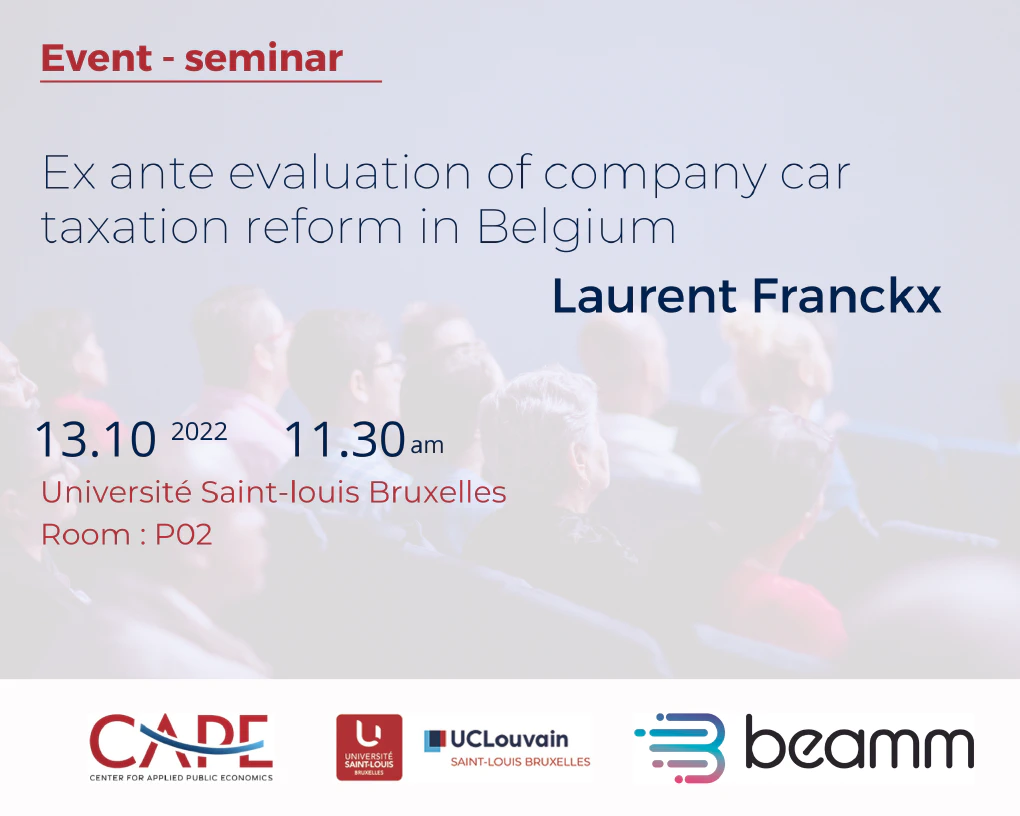Laurent Franckx
The Law of 25 November 2021 phases out the corporate income tax deductibility for all company cars except fully electric ones. This paper uses the Belgian CAr Stock Model -CASMO - to estimate the impact of this reform. CASMO uses now a separate discrete choice model for company cars with a novel indicator of the gross wages employers can save by offering company cars as a benefit in kind. The main effect of the tax reform is a very sharp drop in sales of petrol plug-in hybrid cars from 2026 on, mainly in favour of electric cars. The share of electric cars in new company cars sales quickly rises above 50% and exceeds 75% by 2030. Due to the rapid renewal of the company car fleet, changes in the composition of sales also translate relatively quickly into changes in the composition of the fleet. By 2040 the commercial vehicle fleet will be almost entirely electric, even without tax reform. In other words, the tax reform mainly leads to an acceleration of the electrification of the fleet. Since plug-in hybrid cars now benefit from a large corporate tax deduction, the main budgetary effect of the reform is an increase in corporate tax revenues. This largely compensates for the lower revenues from the taxation of the benefit in kind and the lower revenues from excise duties and VAT on fuel. The overall effect of the reform is an increase in annual net tax revenues of about 1 billion from 2026 onwards.

